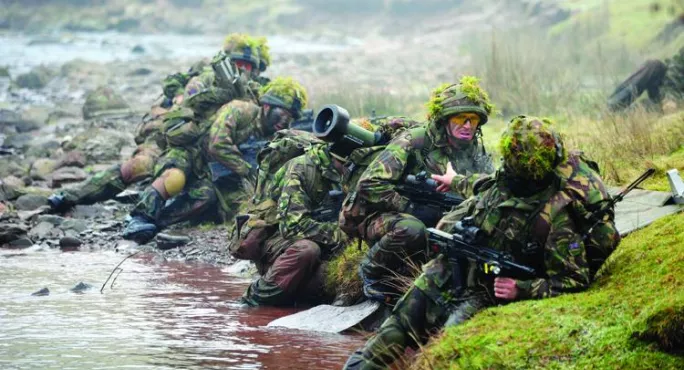- Home
- Four things schools can learn from the military
Four things schools can learn from the military

One thing so utterly predictable in the world of behaviour in schools is the call for former soldiers to become teachers and instil some much-needed, good old-fashioned discipline in today’s schoolchildren.
Now, I agree wholeheartedly that we should encourage former servicemen and servicewomen to consider a second career in the classroom - we can learn a lot from them. I am confident that they can, and do, make excellent teachers.
But better behaviour in schools will not automatically arrive with them, and adopting military-style behaviour regimes won’t fix things either.
Schools ‘don’t need military-style orders’
To believe otherwise is to cherry-pick features of military life that the advocates think will transform behaviour.
We do not need to drill children to respond instantaneously to the (shouted) word of command. Soldiers are trained to respond in this way to ensure that they carry out orders even when every fibre of their being is telling them not to, because bad guys are shooting at them and it is literally matter of life and death.
We don’t need to insist on a hyper-stringent uniform code. Armed forces personnel are trained to look after their kit to ensure that it functions when they need it in difficult circumstances. A dirty cooking kit may lead to food poisoning when living in the field; a dirty weapon that fails to fire puts them and their fellow soldiers at greater risk.
A uniform approach isn’t necessary
For sure, there is a pride in the uniform but that goes along with the sense of belonging (more of which below). The lesson isn’t that having the wrong shade of grey trousers is a court-martial offence, rather it is about the importance of taking responsibility for personal administration.
What we should do is take a much closer look at features of military life that are replicable in schools, but that are so often ignored.
1. A sense of belonging
Regiments, squadrons and ships are excellent at creating a cast-iron esprit de corps among their members. This sense of belonging can be so strong that it remains with former servicemen and women for life.
I remember when a friend of mine, a fiercely proud Gordon Highlander, told me that his regiment was to be merged with another Scottish regiment.
“Are you OK with that?” I asked. “How would you feel if your school merged with the one down the road?” he shot back.
This sense of belonging and corporate responsibility permeates throughout the life of a school in a positive feedback loop. There is likely to be less litter, more consideration for others and greater respect for the school environment and the people in it.
There is much we can do, and already do, in schools to foster this sense of belonging.
However, what about the children who are singled out for behaviour? Do they feel they belong in our schools or do they feel marginalised or rejected? We would do well to focus on how we can help these particular children to realise that they do have a stake in our schools and that these schools are places where they can be successful.
2. Strong routines
A strong feature of military training is the relentless use of practice, routines and drills for some things, so that they become automatic without the need to bark orders. This is not to say that we want to turn children into unthinking automatons, rather when some things become second nature the pupils become freer to get stuck into things that require more depth and consideration.
3. Physical activity
Sport, with all the physical and mental benefits that it brings to the person, is another way for children to take pride in representing our schools. There is an added benefit in that we get to compete against our neighbours whilst instilling in our students the importance of winning with humility and losing with grace.
4. Sense of duty
Lastly, the greatest common factor between service personnel and teachers is our sense of public duty, and surely there could be no better lesson to teach our students than the importance of committing themselves to the service and support of others.
Jarlath O’Brien works in special education in London, and is the author of Better Behaviour - a guide for teachers
Keep reading for just £1 per month
You've reached your limit of free articles this month. Subscribe for £1 per month for three months and get:
- Unlimited access to all Tes magazine content
- Exclusive subscriber-only stories
- Award-winning email newsletters